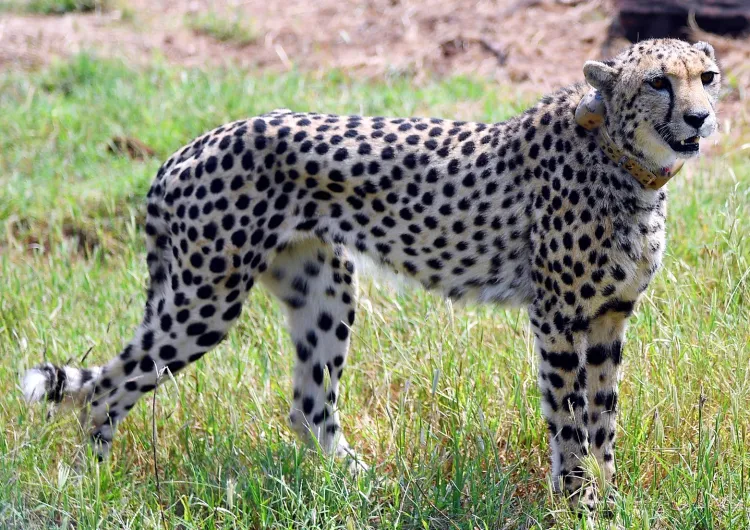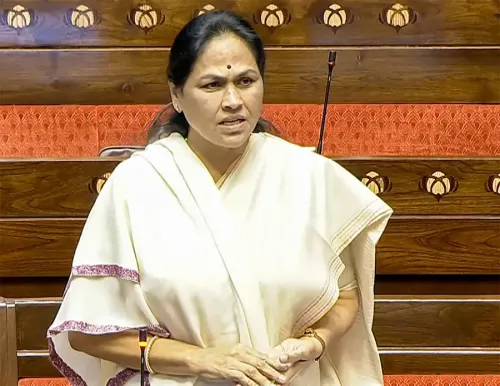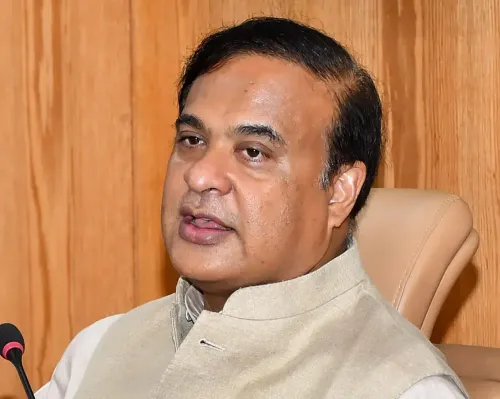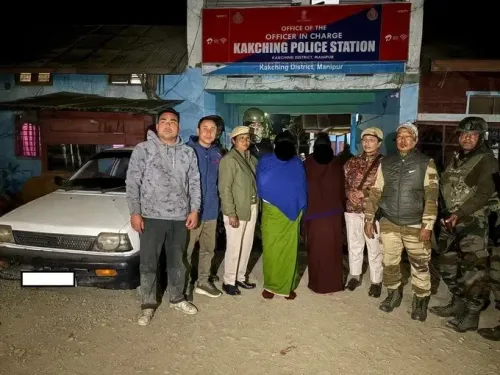What Happened to the Namibian Female Cheetah Nabha?

Synopsis
Key Takeaways
- Nabha's death highlights the risks faced by reintroduced wildlife.
- The Cheetah Reintroduction Project aims to revive India's cheetah population.
- Current cheetah population in Kuno National Park stands at 26.
- Veterinary teams are working diligently to ensure the health of the remaining cheetahs.
- Conservation efforts continue despite challenges.
Bhopal, July 12 (NationPress) In a heart-wrenching event at Kuno National Park, a Namibian female cheetah known as Nabha has tragically passed away due to injuries incurred during a hunting attempt inside her 'Soft Release Boma'. A boma is an enclosure typically found in East and Southern Africa.
Nabha was part of the 20 cheetahs transported from Namibia in the second phase of India's ambitious 'Cheetah Reintroduction Project', which took place in two batches on September 17, 2022, and February 2023.
This 8-year-old cheetah had been receiving medical treatment for a week after suffering severe fractures in both the ulna and fibula of her left leg, along with other injuries, according to a statement.
Sadly, despite the dedicated efforts of veterinary teams, Nabha succumbed to her injuries.
Further details regarding the incident will be provided after the post-mortem investigation is completed.
Nabha's passing represents a sorrowful chapter in the ongoing Cheetah Reintroduction Project, a groundbreaking initiative aimed at restoring the cheetah population in India after a 70-year absence.
As one of the initial group of cheetahs introduced to the country from Namibia, Nabha played a critical role in this conservation effort.
"The female cheetah Nabha was severely injured last week, likely during a hunting attempt within her soft release enclosure. She had fractures in both the ulna and fibula on the left side, alongside other injuries," explained Cheetah Project Field Director Uttam Sharma.
On a brighter note, the current cheetah population in Kuno National Park has reached 26, consisting of 9 adults (6 females and 3 males) and 17 cubs born in India.
Wildlife officials report that all cheetahs are in good health, with recent anti-ecto-parasitic treatments successfully completed.
Significantly, 16 of these cheetahs have already adapted to the wild, where they are successfully coexisting with other predators and engaging in regular hunting activities — a vital marker for the project’s success.
Additionally, two male cheetahs situated at Gandhisagar are thriving.
The Cheetah Project Field Director highlighted that the overall condition of the cheetahs is promising, particularly the mothers Veera and Nirva, who are nurturing their newborn cubs.
As the project advances, each triumph — and each loss — serves as a poignant reminder of the aspirations and challenges in wildlife conservation.
Kuno remains a crucial habitat for India’s ambitious endeavor in species restoration.
Nabha's journey exemplifies the fragile balance of nature and the unwavering dedication of those committed to its protection.
The Chief Minister of Madhya Pradesh has frequently indicated that more cheetahs will be introduced at various locations.
Earlier this year, he released two cheetahs into the Gandhi Sagar wildlife area near Neemuch in western Madhya Pradesh.










